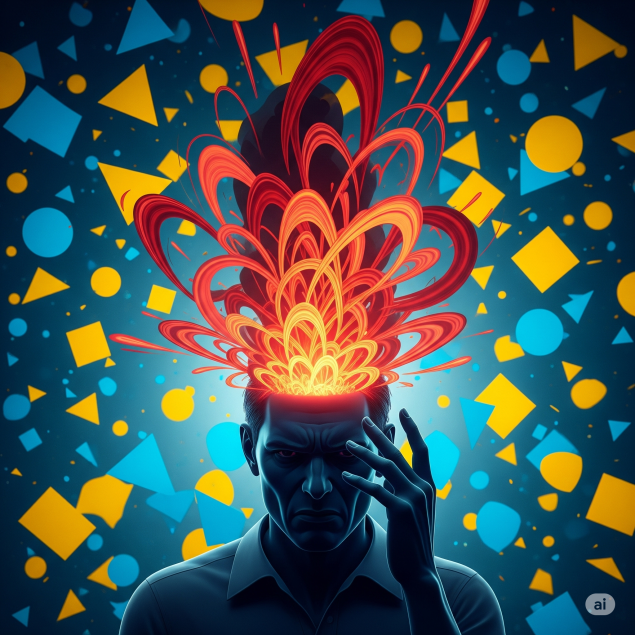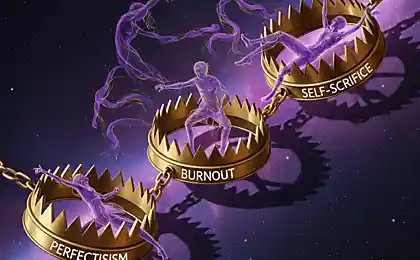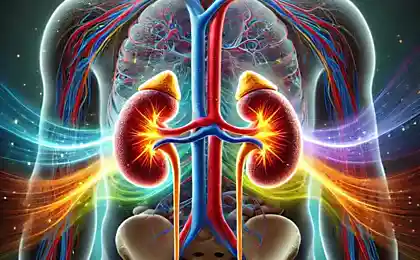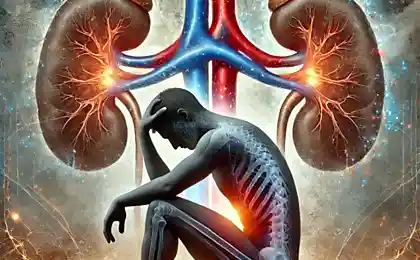115
7 Signs of Moral Exhaustion and Pathways to the Revival of Internal Energy
How to Recognize Emotional Burnout and Return the Joy of Life

Imagine: you wake up in the morning and coffee seems tasteless, your favorite work has turned into an endless routine, and thoughts about rest cause only sadness. Familiar? Perhaps you are faced with one of the most insidious conditions of our time – moral exhaustion. It’s not just fatigue that can be fixed on the couch on a weekend. It is a deep emotional burnout that affects all areas of life.
According to the World Health Organization, burnout affects more than 40% of the working population in developed countries.
Moral exhaustion is a condition where your energy system is running in a state of constant scarcity. The body literally forgets how to feel joy and recover naturally.
The mechanism of moral exhaustion
To understand the nature of this state, it is important to realize that our psyche is a complex energy system. When we are constantly under stress, not getting enough recovery, or facing chronic conflict, this system begins to work for wear and tear.
Modern neuroscience shows that prolonged stress leads to changes in brain structure, especially in areas responsible for emotional regulation and decision-making. The prefrontal cortex—our “control center”—is literally depleted, which explains many of the symptoms of burnout.
7 key signs of moral exhaustion
1. Chronic fatigue that does not go away after rest
This is no ordinary physical fatigue. You can sleep for 10 hours, spend the weekend in complete peace, but still wake up broken. This condition indicates a deep exhaustion of the nervous system, when even prolonged rest is not able to restore energy resources.
Recovery Technique: Micro-meditation Every two hours, take 15-20 minute pauses. Find a quiet place, close your eyes and focus on breathing. This simple practice helps reboot the nervous system and prevent the buildup of stress.
2. Loss of interest in previously enjoyable activities
Anhedonia is a scientific term for the inability to experience pleasure. When favorite hobbies, meetings with friends or even watching interesting movies stop bringing joy, this is a serious signal. The brain in a state of exhaustion saves energy by shutting down the reward system.

It's important to understand:
Don’t force yourself to “rejoice through strength.” Forcing positive emotions can only aggravate the condition. Start small – set aside 15 minutes a day for something pleasant, without expecting immediate excitement.
3. Cognitive impairment: problems with memory and concentration
Do you forget where you put your phone? Do you read one message three times to understand its meaning? These are not age-related changes or lack of intelligence. In chronic stress, the brain literally “overheats” and higher cognitive functions begin to malfunction.
Cognitive recovery strategy:
- Keep a diary and write down all tasks.
- Break down large projects into microsteps
- Practice "brain unloading" - write down all thoughts on paper
- Use the Pomodoro technique to work with concentration
4. Psychosomatic manifestations
Headaches of tension, problems with the gastrointestinal tract, muscle clamps, insomnia - all these are bodily manifestations of psychological distress. Your body literally screams that the nervous system is in a state of constant combat readiness.
5. Social exclusion
When communication begins to be perceived as an additional burden rather than a source of support, it is a clear sign of emotional exhaustion. The paradox is that isolation only exacerbates the problem – the person as a social being needs the support of others to recover.
6. Procrastination and avoidance of tasks
It is not laziness or lack of willpower. When mentally exhausted, the brain actively protects itself from any additional load, including important matters. The prefrontal cortex, which is responsible for planning and self-control, operates in an energy-saving mode.
If a task can be completed in less than two minutes, do it immediately. This prevents the accumulation of small cases and gives a sense of control over the situation. Don’t forget to praise yourself for every action you take.

7. Increased irritability
If you used to calmly endure minor troubles, and now lose your temper because of the loud laughter of your neighbor or the slow Internet, this indicates a critical depletion of emotional resources. The self-regulation system is at its limit.
10 Seconds Technique When you feel an angry outburst approaching, take a deep breath and slowly count to ten. This gives the prefrontal cortex time to turn on and take control of emotional responses.
Evidence-based recovery strategies
The good news is that the brain has an amazing ability to recover. Neuroplasticity allows you to form new neural connections and repair damaged areas even after prolonged stress.
Integrated recovery approach:
- Respiratory practices: Method 4-7-8 (inhale 4 counts, delay 7, exhale 8) activates the parasympathetic nervous system
- Physical activity: Even 20 minutes of walking a day stimulates the production of neurotrophic factor of the brain
- Grounding Techniques: 5-4-3-2-1 (name 5 things you see, 4 you hear, 3 you feel, 2 you smell, 1 you taste)
- Quality sleep: Create a bedtime ritual, use an eye mask, keep the bedroom cool
Recovery from moral exhaustion is not a sprint, but a marathon. It is important to be patient with yourself and understand that change is gradual.
When to seek professional help
If symptoms of mental exhaustion persist for more than two weeks despite the use of self-help techniques, this is an occasion to consult a specialist. It is especially important not to delay if there are thoughts about the meaninglessness of life or unwillingness to wake up in the morning.
Red flags:
- Loss of interest in all areas of life
- Sleep disorders for more than two weeks
- The emergence of suicidal thoughts
- Abuse of alcohol or other substances
- Total social isolation
The Path to Revival
Moral exhaustion is not a sentence, but a signal that it is time to reevaluate your priorities and how you interact with the world. This is an opportunity to learn to better understand your needs and create a more harmonious life.
Remember: taking care of your mental health is not selfishness, but a prerequisite for a full life. By investing in your recovery today, you are creating the foundation for a brighter and more vibrant future.
Be patient with yourself and do not hesitate to ask for help. Your well-being is worth all your efforts.
Glossary of terms
andhedonia Inability to enjoy activities that normally bring joy. A key symptom of depression and emotional burnout.
Prefrontal cortex The area of the brain responsible for planning, decision-making, impulse control and emotional regulation.
Neuroplasticity The ability of the brain to change and adapt, forming new neural connections throughout life.
Psychosomatic disorders Physical symptoms and diseases that arise or worsen under the influence of psychological factors.
Parasympathetic nervous system The part of the autonomic nervous system responsible for rest, recovery and relaxation.
Grounding techniques Methods to help you return to the present moment and reduce anxiety by focusing on sensory sensations.
Brain Neurotrophic Factor (BDNF) A protein that promotes the growth, development and survival of neurons, important for learning and memory.























